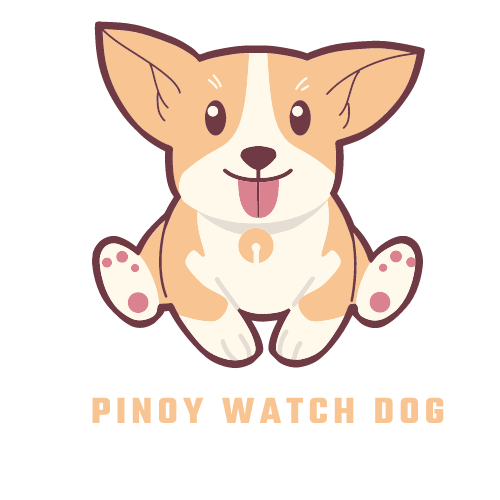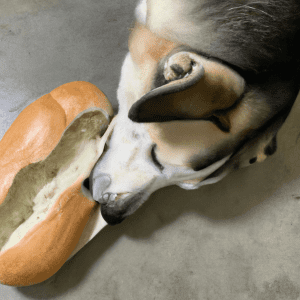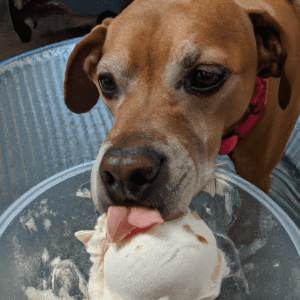Dogs are a beloved part of the family, and as such, their diet is of utmost importance when it comes to their health. One of the most common questions pet owners have is whether their four-legged friends can safely eat beef fat. The answer is yes, as long as it is cooked and consumed in moderation. Beef fat can provide a variety of health benefits for dogs, including improved digestion and a boost in energy.
However, it is important to note that too much of a good thing can be unhealthy for your pup, so it is important to monitor the amount of fat that your dog consumes. In addition, it is important to be aware of any potential allergies or sensitivities that your pet may have when it comes to beef fat consumption. With these considerations in mind, this article will provide an overview of the benefits, risks, and guidelines related to feeding your pup beef fat.
The Potential Dangers of Feeding Dogs Beef Fat
Feeding dogs beef fat can have potential dangers, so it’s important to be aware of them before you choose to do so. First, beef fat can be high in fat and calories, which can lead to weight gain in your pup. Too much fat can also cause your dog to develop pancreatitis, an inflammation of the pancreas. Symptoms of pancreatitis can include vomiting, diarrhea, abdominal pain, and loss of appetite. It can also be difficult for your dog to digest, which can lead to digestive issues.
Another potential danger is that beef fat may contain bacteria that can cause food poisoning in dogs. If your pup has a weakened immune system or is a puppy, they are at a higher risk of food poisoning. Symptoms of food poisoning in dogs can include diarrhea, vomiting, fever, and lethargy. Beef fat can also contain preservatives and additives that can be harmful to dogs. Always check the labels of any beef fat you are giving your pup to make sure they are free of chemicals and preservatives.
Finally, beef fat can contain high levels of cholesterol, which can increase your pup’s risk of developing heart disease. In conclusion, while beef fat can be a tasty treat for your pup, it’s important to be aware of the potential dangers associated with it. Be sure to check the labels for any preservatives or additives, and avoid feeding it to puppies or dogs with a weakened immune system.
How to Safely Prepare Beef Fat for Your Dog
Feeding your pup beef fat can be a great way to keep them healthy and happy. It is an excellent source of protein and essential fatty acids, which can help support the development of their body and mind. However, it is important to make sure you are preparing the beef fat correctly and safely. Here are some tips to help you out:
- Choose Quality Beef Fat: Make sure to get your beef fat from a reliable source, such as a butcher or grocery store. Try to avoid using fat from an unknown source, as it might not be as safe for your pup.
- Clean the Beef Fat: Before you start cooking, make sure to clean the beef fat thoroughly. Use a mild soap and water solution to scrub away any dirt or debris.
- Cut Into Small Pieces: Once you’ve cleaned the fat, cut it into small pieces. This will help to prevent choking hazards and make it easier for your pup to digest.
- Cook the Beef Fat: Now it’s time to cook the beef fat. You can fry it in a pan or bake it in the oven. Make sure it is cooked through before you give it to your pup.
- Store and Serve: Once the beef fat is cooked, let it cool before you store it in the fridge. To serve, give your pup a portion in a separate bowl from your own food. By following these steps, you can make sure that you are preparing and serving the beef fat safely to your pup. Enjoy!
The Benefits of Adding Beef Fat to Your Dog’s Diet
Beef fat is an excellent addition to your dog’s diet. Not only is it a great source of energy, but it also provides many essential nutrients and vitamins that can help keep your pup healthy and strong. Here are a few of the top benefits of adding beef fat to your pup’s diet:
- Rich in essential vitamins and minerals: Beef fat is packed with essential vitamins and minerals, including vitamin E, thiamine, and biotin. These vitamins and minerals help keep your pup’s organs functioning properly and provide the necessary building blocks for healthy skin, nails, and coats.
- 2. Provides energy: Beef fat is an excellent source of energy for your pup. It provides a concentrated source of calories that can help keep your pup’s energy levels up throughout the day.
- Supports joint health: The fatty acids found in beef fat can help support joint health. These fatty acids can help reduce inflammation in the joints, which can help prevent or reduce pain associated with arthritis.
- Promotes brain health: The fatty acids found in beef fat are also beneficial for your pup’s brain health. These fatty acids can help improve cognitive function and memory. Adding beef fat to your pup’s diet can provide numerous benefits. It’s a great source of energy, essential vitamins, minerals, and fatty acids that can help keep your pup healthy and strong. If you’re looking for a way to give your pup an extra boost of nutrition, consider adding some beef fat to their diet.
Is Beef Fat a Healthier Choice Than Other Fats for Dogs?
It’s no secret that fat is an important part of your dog’s diet. But when it comes to which type of fat is best for your pup, opinions are divided. Some experts recommend beef fat as a healthier choice than other fats for dogs, while others suggest that other types of fat are more beneficial. So what’s the truth? To answer this question, let’s take a look at the nutritional benefits of beef fat. Beef fat is high in monounsaturated fatty acids, which are beneficial for heart health and may help reduce inflammation. It’s also a good source of essential fatty acids, which are important for healthy skin and coat, as well as joint health.
Additionally, beef fat is rich in vitamin B and minerals including zinc and iron. On the other hand, other types of fat such as pork fat, chicken fat, and fish oil have their own unique benefits. For example, pork fat is high in medium-chain fatty acids, which can help promote a healthy digestive system. Chicken fat is a good source of omega-6 fatty acids, which are important for skin and coat health. And fish oil is a great source of omega-3 fatty acids, which have been shown to reduce inflammation and improve cognitive function.
So which type of fat is best for your dog? Ultimately, there is no one-size-fits-all answer. The best way to ensure that your pup is getting the right balance of nutrients is to consult with your veterinarian. They can help you determine the best dietary plan for your pup based on their individual needs. In conclusion, beef fat is a nutritious source of essential fatty acids and minerals that can benefit your pup’s health.
However, there are other types of fat that can also provide your pup with important nutrients. So when it comes to choosing the best type of fat for your pup, it’s best to consult with your veterinarian to ensure that your pup is getting the right balance of nutrients for their individual needs.
Common Questions About Feeding Beef Fat to Dogs
- Is it safe to feed my dog beef fat? Yes, it is generally considered safe to feed your dog beef fat. Most dogs love the taste and it can be a great way to provide them with a nutritious, high-fat meal. However, it is important to check with your vet first to make sure that feeding your dog beef fat is safe for your particular pet.
- How much beef fat should I give my dog? That depends on your dog’s size, age, and activity level. Generally speaking, dogs should get roughly 10-15% of their daily calories from fat. Talk to your vet to get an estimate of how much beef fat would be appropriate for your dog.
- Is beef fat a healthy treat for my dog? Yes, beef fat can be a healthy treat for dogs as long as it is given in moderation. It is a great source of omega-3 fatty acids, which can help keep your dog’s coat healthy and shiny. Additionally, beef fat is chock full of essential vitamins and minerals, such as vitamins A, D, and B12, which can help keep your pup’s immune system strong.
- Is it okay to feed my dog cooked beef fat? Yes, it is okay to feed your dog cooked beef fat. Just make sure that it is cooked thoroughly so that it is safe for your pup to consume. Additionally, try to avoid adding any spices, as they can be too spicy for your dog’s stomach.
How to Tell if Your Dog Is Getting Too Much Beef Fat
If your pup is getting too much beef fat in its diet, you may notice some changes in its behavior and appearance. Here are some signs to look out for:
- Weight gain: Too much beef fat in your dog’s diet can cause them to gain weight quickly. If you notice your pup packing on the pounds, take a look at their diet and consider reducing the amount of beef fat they’re getting.
- Skin and coat changes: Excessive beef fat consumption can cause changes to your dog’s skin and coat. If you notice that your pup’s fur is looking greasy or their skin is becoming dry, itchy, and flaky, it could be a sign that they’re getting too much beef fat.
- Gastrointestinal issues: Too much beef fat can also lead to digestive issues like vomiting, diarrhea, and gas. If you notice your pup is having any of these symptoms, it could be a sign that they’re getting too much beef fat.
- Lethargy: If your pup seems unusually tired and lethargic, it could be a sign that they’re getting too much beef fat in their diet. If you suspect that your pup is getting too much beef fat in their diet, talk to your vet about adjusting their diet to a more balanced one.
Tips for Keeping Beef Fat Treats Healthy for Your Dog
- Avoid overly processed treats – Try to avoid giving your pup treats that are filled with preservatives and other unhealthy additives. Look for treats that are made with natural ingredients and are free of added sugar.
- Monitor quantity – While beef fat treats can provide a tasty and healthy treat for your pup, it’s important to monitor the number of treats your dog is consuming. Too many treats can lead to weight gain, so make sure to stick to a recommended portion size.
- Balance out the diet – Make sure to balance out your pup’s diet with other healthy foods. Beef fat treats should be used as occasional snacks rather than a primary source of nutrition. 4. Read the label – Always read the label before buying beef fat treats for your pup. Look for treats that are made with quality ingredients and are free of artificial flavors, colors, and preservatives.
- Limit treats – While treats can be an enjoyable part of your pup’s diet, it’s important to make sure they’re not over-indulging. Stick to giving your pup treats in moderation to ensure they’re staying healthy.
What to Do If Your Dog Is Overweight and Eating Beef Fat
If your dog is overweight and eating beef fat, there are a few things you can do to help him get back on track. First, you should consult your veterinarian. They can help determine the cause of your dog’s weight gain and provide advice on how to get him back to a healthy weight. Your vet may suggest a diet change, like reducing the amount of beef fat your dog is eating and increasing the amount of healthy, high-fiber foods like vegetables, fruits, and whole grains.
Second, you should make sure to monitor your dog’s calorie intake. Weigh out your dog’s food each time you feed him, so you know exactly how much he’s consuming. This can help you keep track of how much he is eating and make sure he’s getting the right amount for his size and activity level. Third, make sure your dog is getting plenty of exercises. Regular physical activity can help your dog burn off excess calories and maintain a healthy weight.
Take your pup on a daily walk, play fetch in the yard, or try a fun game of hide-and-seek with treats to get him moving. Finally, don’t forget to show your pup lots of love and affection! Dogs that are overweight can be prone to depression, so make sure to give them plenty of attention and positive reinforcement. By following these tips, you can help your dog reach a healthy weight and enjoy a happy, active life.
The Pros and Cons of Feeding Beef Fat to Your Dog
Feeding your dog beef fat can be a controversial and complicated decision. On the one hand, it can provide essential fatty acids and energy. On the other hand, it can be high in saturated fat and lead to health problems. To help you make the best decision for your pup, here are the pros and cons of feeding beef fat to your dog. Pros – Beef fat is a good source of essential fatty acids. These fatty acids are important for healthy skin and coat, as well as for overall good health. – It can provide extra energy for your pup.
This can be especially beneficial for active or working dogs. – It’s a great way to boost the flavor of homemade dog food. Cons – Beef fat is high in saturated fat, which can lead to weight gain and other health problems. – It can also be high in calories, which can be a concern for some dogs. – If it’s not properly cooked, it can be a source of food-borne illnesses. In conclusion, the decision to feed beef fat to your dog should be made with careful consideration. While it can provide essential fatty acids and energy, it can also be high in saturated fat and calories. If you choose to feed beef fat to your pup, make sure it is properly cooked and fed in moderation.
How to Balance Beef Fat with Other Foods in Your Dog’s Diet
When it comes to feeding your dog a balanced diet, beef fat is an important part of the equation. While it’s an excellent source of essential fatty acids, it’s also high in calories, so it’s important to make sure you’re balancing it with other foods. Here are a few tips to help you make sure your pup’s diet is balanced and healthy:
- Give Them Plenty of Protein: Protein is the building block of a healthy diet and should make up the majority of your dog’s food. Look for animal sources such as chicken, turkey, fish, and eggs as well as plant-based sources like legumes, nuts, and seeds.
- Add Healthy Fats: Along with beef fat, make sure you’re providing your pup with other healthy fats, like oils from fish, nuts, and seeds.
- Include Complex Carbs: Complex carbs are a great source of energy and fiber for your pup and should make up a significant portion of their diet. Look for whole grains, sweet potatoes, and oats.
- Mix Up the Vegetables: Vegetables are a great way to add vitamins, minerals, and fiber to your pup’s diet. Try to mix up the types of veg you’re offering your dog, including leafy greens, cruciferous veggies, and squash.
- Feed a Variety of Meals: Variety is the spice of life, and that’s true for your pup’s diet as well. Try to mix up the types of proteins, carbs, and fats you’re feeding them and swap out meals every few days. By following these tips, you’ll ensure that your pup is getting all the nutrients they need from a balanced diet. Beef fat is an important part of that equation, but make sure you’re balancing it with other healthy foods as well!
In conclusion, it is generally safe for dogs to eat beef fat in moderation. However, it is important to note that beef fat is high in saturated fat and calories, so it should not be fed to dogs too often or in large quantities. As with any food, it is important to consult a veterinarian before feeding beef fat to your dog.




